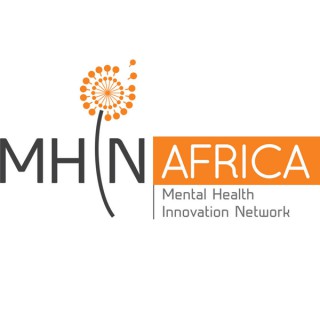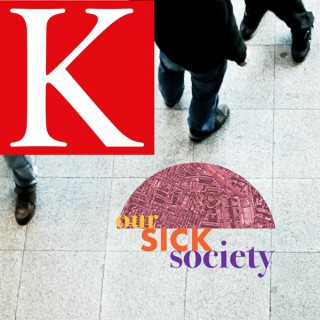Podcast appearances and mentions of charlene sunkel
- 6PODCASTS
- 8EPISODES
- 35mAVG DURATION
- ?INFREQUENT EPISODES
- Mar 1, 2023LATEST
POPULARITY
Best podcasts about charlene sunkel
Latest podcast episodes about charlene sunkel
Episode 15: The UNCRPD General Comment 1 - an end for involuntary psychiatric care?
In 2014 the UN Convention on the Rights of Person's with Disabilities (UNCRPD) recommended that policymakers and psychiatrists should “review the laws allowing for guardianship and trusteeship, and take action to develop laws and policies to replace regimes of substitute decision-making by supported decision-making, which respects the person's autonomy, will and preferences”. These stipulations mean the disbandment of involuntary and assisted care, which are two forms of care that are conventionally used to treat people with lost mental capacity. Involuntary care specifically refers to when someone is treated without their consent, towards the restoration of their autonomy and in the interest of their and others safety . The UNCRPD's stipulations, on the other hand, mean a shift in focus to provision that ensures relational and environmental supports for people with psychosocial conditions who are in crisis, instead of treatment against the person's will. The sentiments of GC1 have been met with caution and sometimes contention, and remain important to policy in UN signatories. To explore some of the complexities of this debate, Alex Freeman interviews Charlene Sunkel, and Prof. George Szmukler - both experts in the field and human rights activists with different experiences and insightful perspectives towards involuntary care and psychiatric provision. For more information about the Global Mental Health Peer Network, visit: https://www.gmhpn.org/ You can download the transcript for this episode here: https://www.kcl.ac.uk/csmh/assets/oss-transcripts/oss-transcript-episode-15.pdf
Vuka Afternoon Show 1 Health Care Hour with Colleen Qvist-Charlene-podcast
How do we end stigma and discrimination in mental health? Co-author of the Lancet Commission, Charlene Sunkel , Founder / CEO of the Global Mental Health Peer Network, South Africa and a person with lived experience of schizophrenia talks to Colleen. #mentalhealth #healthcare #endingstigma Vuka Online - Your Inspiration Radio Station
From battling Schizophrenia to uplifting communities- A timeless journey ft. Charlene Sunkel
People with lived experiences of mental health issues work hard towards managing their everyday lives, coping with symptoms, and more significantly, dealing with stigma. It's inspiring to see how people use that experience, believe in themselves and work towards making a difference, which in turn empowers others around them. Welcome to LonePack Conversations! In today's episode, Charlene Sunkel shares her journey about battling Schizophrenia, and uplifting voices of people who have had lived experiences with mental illness by creating the Global Mental Health Peer Network.
12 - Psycho Social Disabilities Travel with Charlene Sunkel
Accessible South Africa — Our host, Lois Strachan, chats to Charlene Sunkel who is the Founder and CEO of the Global Mental Health Peer Network. Charlene was diagnosed with Schizophrenia, one of the most severe mental illnesses, which led to her career in promoting the rights of people with psycho-social disabilities with a strong human-rights focus. Charlene serves on a number of national and international boards and committees and travels extensively, mostly for work, at least once a month. Our service provider spotlight takes us to the Greenpoint Urban Park. This episode was edited by Deirdre Gower using the Hindenburg software: www.hindenburg.com
12 - Psycho Social Disabilities Travel with Charlene Sunkel
Our host, Lois Strachan, chats to Charlene Sunkel who is the Founder and CEO of the Global Mental Health Peer Network. Charlene was diagnosed with Schizophrenia, one of the most severe mental illnesses, which led to her career in promoting the rights of people with psycho-social disabilities with a strong human-rights focus. Charlene serves on a number of national and international boards and committees and travels extensively, mostly for work, at least once a month. Our service provider spotlight takes us to the Greenpoint Urban Park. This episode was edited by Deirdre Gower using the Hindenburg software: www.hindenburg.com
Seminar 1 Deadly Practices Esidimeni and beyond (part1)
This podcast is Part One of an audio recording of the first of two seminars in the seminar series that was linked to the Deadly Medicine Travelling Exhibition (22 February - 26 March 2018) of the Cape Town Holocaust Centre. Seminar one was titled “Deadly Practices: Esidimeni and beyond” and was held at Stellenbosch University on the 16th of April 2018.Part one consists if short presentations of the speakers about their work as follows:00:00 - 5:36: Opening by the Director of the South African Holocaust and Genocide Foundation, Mr Richard Freedman 5:40 - 9:45: Christina Teichman, Project Manager at the Konrad Adenauer Foundation9:55 - 15:46: Chairperson Prof Leslie Swartz from the Department of Psychology, Stellenbosch University15:59 - 30:15: Annie Robb on the facts of what happened, the process and the activism around the Esidimeni tragedy where 144 mental health patients died after being moved from Life Esidimeni hospital to unlicensed NGOs31:38 - 46:23: Charlene Sunkel on placing Esidimeni in the global mental health context47:45 - 1:06:14: Charlotte Capri on “Esidimenis are going on all the time”1:07:08 - 1:23:18: Prof Bonga Chiliza on the responsibilities of health professionals and the state in the wake of the tragedy
Interview with GMHPN founder Charlene Sunkel by Asanda Mcoyana of MHIN Africa
Asanda Mcoyana, Communications Officer at MHIN Africa sat down for a podcast interview with the founder of the Global Mental Health Peer Network, Charlene Sunkel describing the network, its origin and how to use the network.The GMH Peer Network was recently launched at the 5th Global Mental Health Summit that took place in Johannesburg, South Africa in February 2018. Charlene Sunkel is also the Programme Manager for Advocacy & Development at the SA Federation for Mental Health as well as the Principal Coordinator for the Movement for Global Mental Health.Contributor(s): Asanda McoyanaCharlene SunkelMHIN Africa
Survey finds psychiatric patients baring the brunt of drug shortage
A survey conducted by the South African Federation for Mental Health has revealed that most psychiatric patients have been turned away from primary healthcare clinics without at least one of their medications because of drug shortages. The organisation says that these shortages threaten patients with relapse, loss of employment and social isolation. But just how bad is the situation and why do we know so little about it? We spoke to Charlene Sunkel, Programme Manager in Advocacy and Development at the SA Federation for Mental Health...









